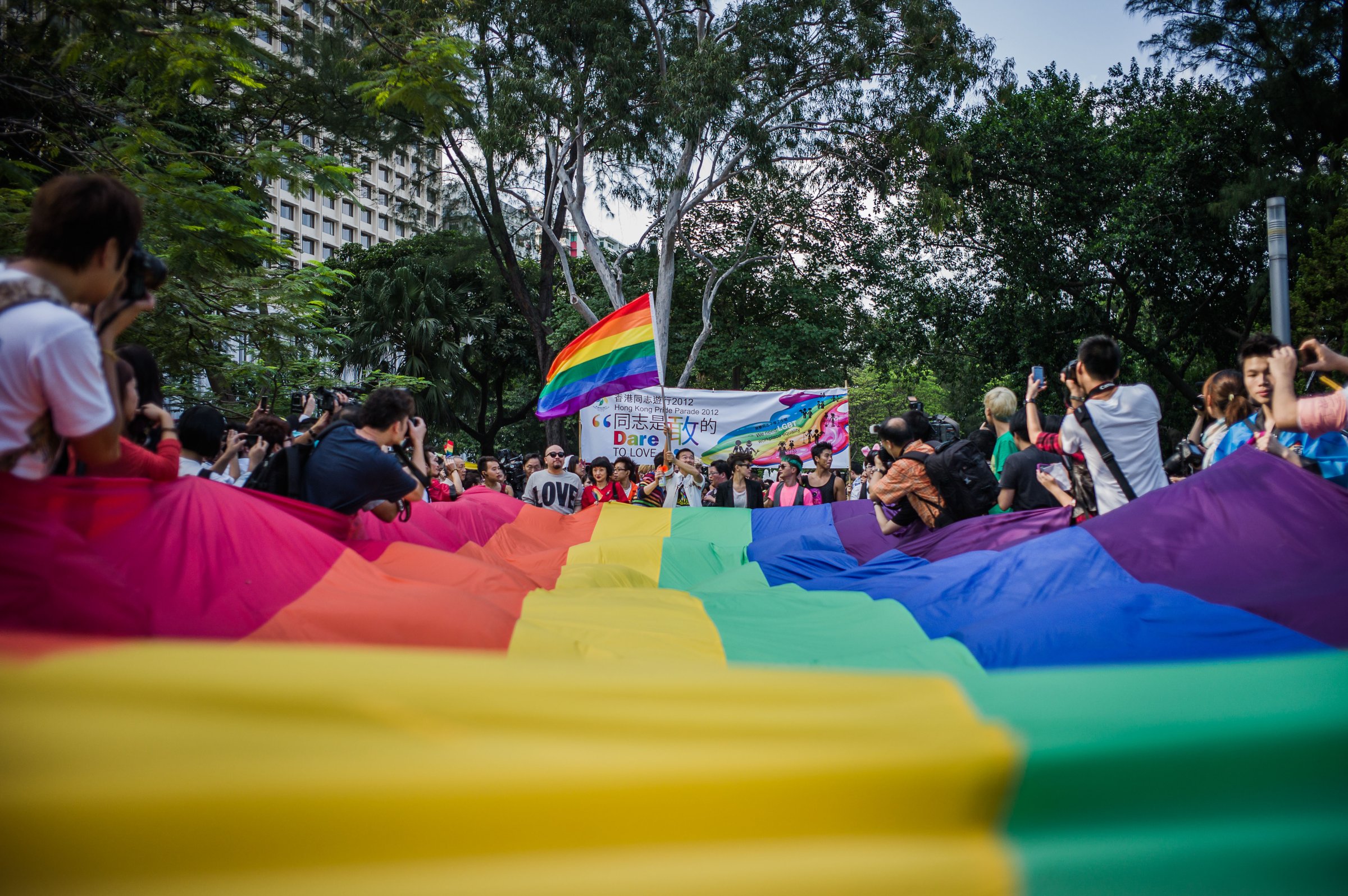
With its porcelain-faced young cast and tales of love, sex and family pressures, it is easy to see why the Chinese drama Addiction was such a runaway success. However, the hit online show, which features a predominately gay cast, was abruptly taken off the air this week, once again demonstrating the mainland Chinese authorities’ distinct discomfort regarding homosexuality.
The 15-part drama, which follows the lives of four gay high school students, has apparently been deemed unfit for viewing just three episodes before the first-season finale. The show’s producers, who have not given any official reason for why it was pulled, say it garnered 10 million views the day after its initial release. It was apparently the second most watched show on iQiyi, China’s leading commercial online film and television portal.
“There’s no reason. It’s a result of the broader context,” said Chai Jidan, the writer of Addiction, according to Chinese news outlet ifeng.com.
Read More: China’s Gays and Lesbians Join the Global Debate on Same-Sex Marriage
China has historically had an uneasy relationship with homosexuality. While ancient accounts of same-sex relationships abound (and liaisons were even celebrated), homosexually was only officially decriminalized in 1997 and remained a “mental illness” until 2001. Many in the older generation still consider homosexuality a “foreign” concept that only exists in China because of corrupting outside influences.
However, interest in homosexuality among the younger generation — particularly heterosexual women — has blossomed recently. Last year a video, From Dark Night to Daytime, recounted stories of 48 gay men and women and their families across China to rave reviews. Produced by two Chinese folk photographers, Masa and Mojo, it aired on one of the nation’s top websites.
However, China remains culturally at odds with homosexuality, largely owing to traditional notions of producing a male heir to carry on the family line (daughters are expected to join the family of their husband). This onus is exacerbated by the (now loosened) one-child policy. As a result, an estimated 70% of the 40 million-odd gay Chinese enter a heterosexual marriage, according to renowned sexologist Li Yinhe.
The Chinese Communist Party (CCP) has increasingly treated the question of sexuality as a private affair, adopting a policy of “don’t support, don’t ban, don’t promote.” After all, China is officially an atheist country, thus does not experience the kind of constitutionally protected malicious homophobia of the Westboro Baptist Church variety.
However, any kind of social cohesiveness outside CCP parameters makes the party very chary, including demonstrations of civic solidarity like gay-pride events. The CCP is quick to bring out the “social stability” card whenever LGBT activism garners too many headlines, as demonstrated by the arrest of nine activists during a peaceful demonstration in 2014. Other gay-themed television shows have also been scrubbed from schedules in recent years. Like so much in China, the party is happy to turn a blind eye until an arbitrary tipping point is reached
Matthew Baren, a spokesperson for Shanghai Pride, tells TIME that while its “disappointing” that Addiction has gone offline, “it’s very encouraging to see shows about homosexuality being made in China, by Chinese talents and for Chinese audiences.”
Addiction’s producers say those wishing to catch the last three episodes can do so on YouTube, the web-streaming service that also remains banned in China. This has not assuaged fans of the show, of course; online discussions on China’s microblogging service Weibo hashtagged “removal of Addiction” received more than 110 million hits within a day of its cancelation, reports state newspaper Global Times.
“Why did they take away this drama?” wrote one Weibo user quoted by the South China Morning Post. “There are millions of reasons to cover their move, but the truth is that they are afraid of gay [issues].”
More Must-Reads From TIME
- The 100 Most Influential People of 2024
- Coco Gauff Is Playing for Herself Now
- Scenes From Pro-Palestinian Encampments Across U.S. Universities
- 6 Compliments That Land Every Time
- If You're Dating Right Now , You're Brave: Column
- The AI That Could Heal a Divided Internet
- Fallout Is a Brilliant Model for the Future of Video Game Adaptations
- Want Weekly Recs on What to Watch, Read, and More? Sign Up for Worth Your Time
Write to Charlie Campbell / Beijing at charlie.campbell@time.com